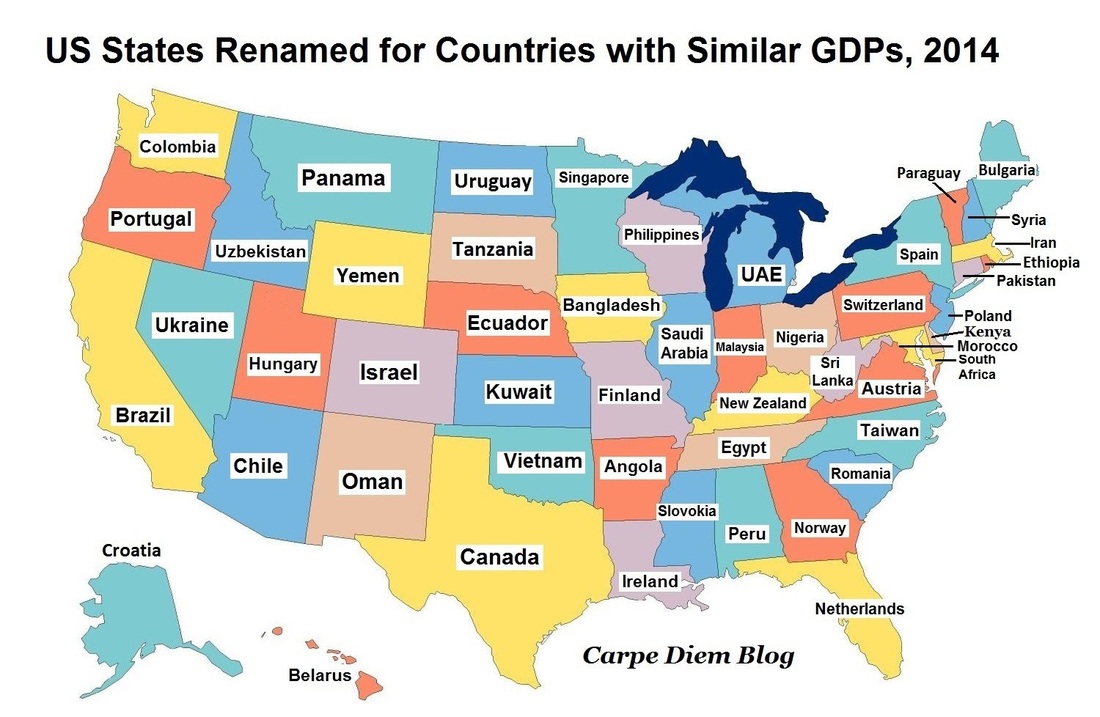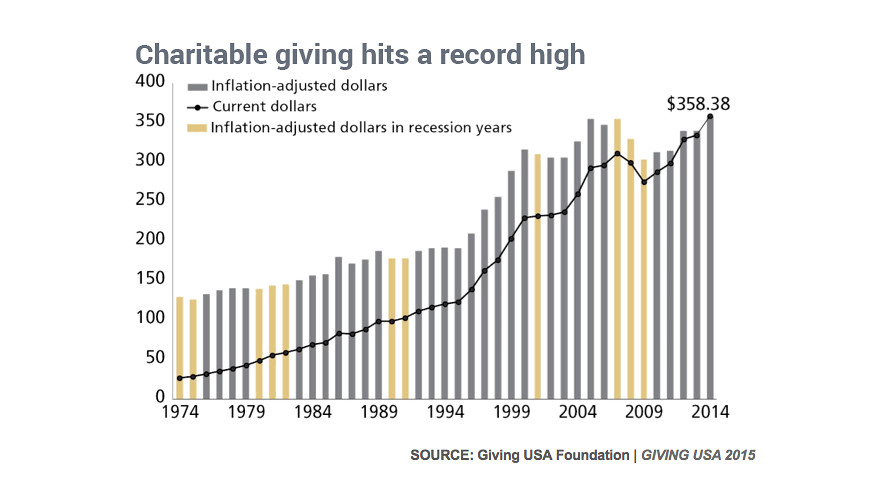Again: The dictionary definition is fairly obvious: “once more; relating to a previous position or condition.” Again is nondescript, unspecific, and precisely because of that, inspiring. It rallies supporters to charge bravely towards something once held, like King Henry V rallied the troops into battle:
Once more [again] unto the breach, dear friends, once more;
Or close the wall up with our English dead.
Great: How is greatness gained and lost? And what does it mean for a nation to be great? It may help to look to the past for clues. In ancient times the Greek and Roman Empires were great, as were the Mayan and Aztec civilizations. More recently, we could look to the British Empire, Napoleonic France, or Spain and Portugal during the age of exploration. Common characteristics of these civilizations include military power, strong leadership, technological innovation, and healthy economies. The dark side to this greatness includes imperialism, subjugation of other people groups through force and religious and political oppression.
Some of these civilizations have fallen from greatness in that they no longer exist except in architectural ruins. Others remain, but in different forms and have lost much of their influence. Looking just at the EU, the U.K. continues to be a world power despite the fact that it is no longer a colonialist empire, while the once mighty Greece is struggling with economic survival.
If we use similar categories to evaluate the United States we find the strongest military in the history of the world,*** a government of checks and balances whose president is the most powerful person in the world, a culture that leads the world in innovation and quality of education, and an economy that consistently outperforms not only China, but also the entire European Union (see map).
If these arguments are overly complicated, we could simplify. Maybe Great just means “America feels like a great place to live.” Having traveled a lot, both in the U.S. (43 states) and abroad (14 countries, 4 continents), I can say with confidence that America is a great place to live (in fact, there are a lot of great places to live in this world). And if you are a U.S. citizen, unless you're reading this from an expat community in Panama, it seems that you agree.
America: This leads us to our third word. What is America? In the words of Irish rock star Bono, both patriot and critic, “America is an idea. That’s how we see you around the world. As one of the greatest ideas in human history.” While we have made our share of mistakes, and committed our share of atrocities, we remain a nation built on the principle that
“All men [humans] are created equal, that they are endowed by their Creator with certain unalienable rights, that among these are Life, Liberty and the pursuit of Happiness.”
Caught up in our daily routines, we can forget the import of these words. Certainly it’s easy to take them for granted, but only because of the extent to which they have been realized. Just ask a refugee seeking asylum or an immigrant looking for opportunity (like my Mexican, Russian and Ukranian neighbors); they will remind you of the meaning of our creeds. They are here because liberty, equality and opportunity are embedded in the promise of our nation.
It wasn’t always this way. When the Declaration of Independence was written, “All men” seemed to apply more to educated, wealthy, landowning males of European descent than it did to slaves or women.*** Depending on your age and ethnicity, it's possible that you couldn't vote until 1965. That's when the Voting Rights Act was passed which finally guaranteed African Americans living in the South the right to cast a ballot. And even if you were white, if you were a woman your vote didn't count in many states until Women's Suffrage passed in 1920. Certainly in these matters America is a better place today than it was just a few decades ago.
Some have proposed that Make America Great Again is a moral slogan; that the America of today is on a slippery slope towards depravity. These arguments are appealing in that they allow a person to feel a sense of superiority and self-righteousness. A person who believes themselves immoral wouldn’t argue that America is immoral, that would be self-condemnation. So by pointing out depravity in culture, you can wash your hands of blame and soothe your own guilty conscience. But what kind of immorality is in view when these arguments are made? How is this supposed depravity being measured, weighed and compared against the immorality of the past? Is it even possible?
Often, if a person makes this argument they are referring to sex in some way, shape or form, whether it is the supposed increase in sexual activity in teens, or issues surrounding the LGBTQ community, like same-sex marriage.***** But even if we were to assume an increase in immorality on some issues, shouldn't we also recognize positive movements towards morality on others? For example, pornography use has increased, but segregation and slavery is illegal. Mass shootings are occurring at an alarming rate, but overall homicide rates seem to be on the decline. On top of this, we must also take into account positive trends like the increase in charitable giving shown in this chart:
Make: We began by looking at the rhetorical power of the Make America Great Again slogan, and Make is a vital part of that because it is a call to action, a command. “Command, don’t suggest" is one of the iron rules of copywriting and fundraising (my day job). Psychologically, people are more likely to respond to a direct command than to a statement of fact or a suggestion. Make is a clear and bold directive that adds power to an otherwise mundane motto. Think of the alternatives: ‘America can be great again.” “America is great.” “America will be great.” None of these carry the same authority or the same sense of purpose as Make America Great Again.
For a candidate to trademark this phrase and hand it to voters is a pretense. Donald Trump can’t make America great again; neither can Hillary Clinton, Bernie Sanders or any third party candidate. They can’t make America great again because America is great. There is no Golden Age in the past to which we should return. Our Golden Age lies in the future. The past is what we carry with us as we march, building on our successes, learning from and correcting our mistakes. It will not be accomplished by a single candidate or a single party, but by a dialogue between all of us as we share and are challenged by the best ideas our opponents have to offer. To borrow another phrase from Ronald Reagan, “Let’s reject the nonsense that America is doomed to decline.”
Postscript: We still have a long way to go. I am not advocating that we simply stay the course and accept the status quo; there are many policies that must be changed in pursuit of a better future. But that is why we study, learn and work hard.
----------------------------
*This is intended as an example of the emotional undertones of campaign slogans, not an endorsement of Barack Obama.
**Interesting that no one is accusing Trump of un-patriotism over this. If a non-Republican made this claim, they would be lambasted by the far right. Does anyone know if Michael Medved still talks about America as “The greatest nation on God’s Green earth” on every program? It seems as if at least some conservatives still think we are a great nation.
***The U.S. military differs from that of historical empires and kingdoms in that it is not used for colonization and conquest, and in situations like the recent Ebola outbreak, its infrastructure has been invaluable to the international community as a humanitarian force.
****What makes the founding documents so brilliant is that with time and a great deal of effort, we have been able to rightly recognize that “All men” truly means “all of humanity,” regardless of “race, color, religious creed, national origin, ancestry, sex, sexual orientation, age, genetic information, military service, or disability”, cf. Civil Rights Act of 1964 Revised.
***** Usually the means of acquiring this insight is not carefully studied statistics, but rather Argumentum Ad Populum (Latin for “everyone knows it is true;” a logical fallacy). For example, “Everyone knows people are having more illicit sex.” I won’t commit the same fallacy by claiming that sexual ethics have always been what they are now, but it doesn’t take very much research to find historical accounts of torrid affairs and illegitimate children from every generation. The pornography endemic is an exception, in that the Internet has made pornography use much more widespread.



 RSS Feed
RSS Feed
